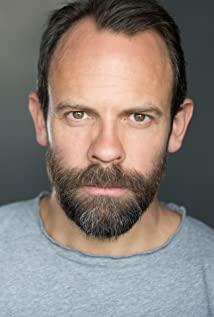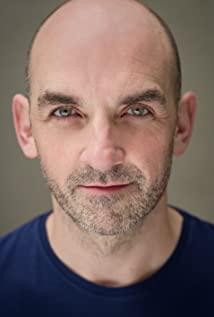At the beginning of each episode, the subtitle "This is a true story. What follows is a dramatization based on research..." not only emphasizes the seriousness of the story, but also leaves hope for everyone. The story is really depressing, justice is long overdue, and good people don't end well. My mood is slowly sinking like the life of the protagonist Steve, aggrieved and helpless. The unease came to a head at the end of the penultimate episode: a series of blows and pressure from all sides forced Steve to leave the job he loved and fought for all his life, at the age of his retirement. How will the road ahead, and will the last episode be able to turn the tide against the wind? I was worried and scared.
Steve, as the protagonist, is different from the high-spirited detectives in ordinary TV shows. Like the detective Sherlock, no matter how powerful the enemy is, we all believe that Sherlock can break the game and reverse the situation. Because we are immersed in his world with Sherlock, focused on one goal, plotting layouts, with little regard for changes and resistance from the surrounding environment. But Steve's situation is complicated: he's the absolute protagonist only when he's investigating a case, leading the crowd and invincible. At the center of the maelstrom, he became the victim of a struggle on all sides when he faced not just one criminal but multiple interests. Even though Detective Steve turned in an excellent answer sheet, the reality demands compliance with rules and balance. When justice and public consciousness collide, the man who chooses the former is called a hero, but probably a tragic hero.
When Steve took the prisoner back to the police station, everyone was congratulating him; in terms of reason and routine, it was enough to stop here, but he was not satisfied, not at peace, because he found He found two corpses that "neither didn't want to see", and the criminal's doubts and fears of "are two not enough" hovered in his heart. His sensitivity, meticulousness and integrity made him a natural sheriff; but fate made him miserable, and an extraordinary action like a butterfly flapping its wings, pulled him step by step into the abyss of chaos.
As the audience, we stand on the same angle with the protagonist, and naturally feel aggrieved and helpless, just like facing the uncontrollable and powerless feeling of reality. We can't control the thoughts of other people, we can't interfere in everyone's actions; we can only choose our own lives, and we can only move on. Life doesn't stop, maybe it's more exciting ahead.
Note:
1. The other dramas involved in this article are for illustration only, and are not intended to be good or bad; the author likes them all.
2. Suggestions for watching the movie: There are many characters involved in the play, and there are many group scenes in the first few episodes, which is easy to faint. It is recommended to pay more attention to the names and relationships between people, but don't be too detailed. Only a few main characters appear frequently in the second half, which is easy to sort out.
View more about A Confession reviews











